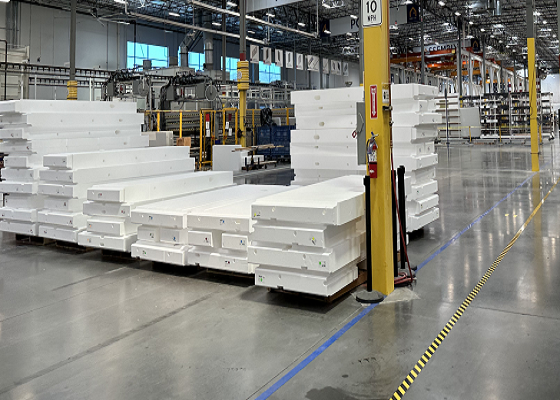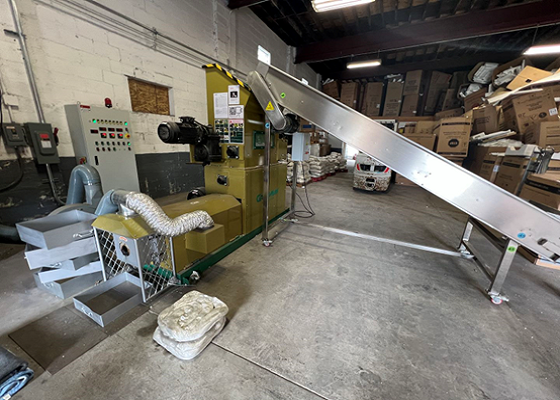EPS melting machine will help Knauf France and other European branches achieve a closed recycling loop
Knauf Industries, partner of the Matériautech service of Allizé-Plasturgie, is a major player in the manufacturing of parts made from cellular materials. With a composition of 98% air, these cellular materials respond to increasingly pressing lightweighting issues. Several solutions exist for each application on different materials: polystyrene, polypropylene, etc. Specific properties reinforce them according to need, such as shock absorption, temperature resistance, or the possibility of being multi-use.
Knauf Circular helped launch an EPS recycling program several years ago to simplify the management and reprocessing of EPS waste. With the help of the company, dealers, residents, and recycling centers who want to participate in recycling can do so. After filling the bags with the Knauf logo, their traceability is ensured via waste collection sheets. The service has launched a pilot phase in southeastern France and will soon be deployed throughout France. This new solution promotes compliance with circular economy regulations by giving resources a second life and helps avoid waste going to landfill.

So how should the collected waste EPS be further processed? Currently, the most important step in recycling waste EPS is compression. As we mentioned above, only two percent of the material is needed to foam and make EPS. Therefore, waste EPS can be efficiently compressed only by squeezing out 98% of the air. EPS melting machine has an absolute advantage in compression ratio. The working principle of GREENMAX EPS melting machine is to use hot melt technology. The usage rate of this recycling technology in Europe is not high. In fact, cold pressing technology is the mainstream of the European recycling market. However, with the continuous enrichment of recycling technology, European regions The acceptance of hot melt technology is gradually increasing, and people are also full of interest in this technology with higher compression ratio. The stronger the compression capability, which will simplify the subsequent recycling process. The compression ratio of GREENMAX EPS melting machine can reach 90:1.

Knauf and GREENMAX have the same recycling philosophy, which seems destined to maximize recycling benefits by using GREENMAX recycling equipment. We all attach great importance to the circular economy of plastics, and GREENMAX has also taken practical actions for this: Buying back EPS ingots for remanufacturing frames. This model has received support from many environmentalists, and these environmentally friendly frames have also flowed into supermarkets around the world, truly realizing resource recycling.

